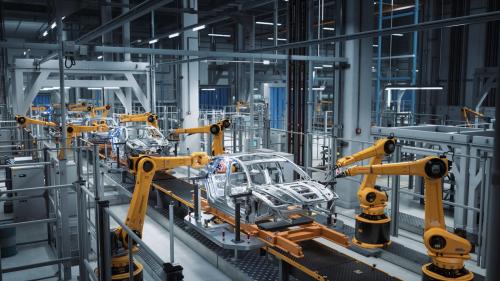This report investigates the accessibility of middle-wage jobs—good-paying jobs for less-educated workers—for those without bachelor’s degrees in 204 metropolitan areas. It measures “accessibility” as the share of jobs that are middle-wage as a percentage of the share of workers without a bachelor’s degree. The higher this percentage, the more accessible middle-wage jobs are. Using American Community Survey and Bureau of Labor Statistics data for 2005, it finds that:
Many middle-wage jobs are in clerical, construction, and production occupations. The largest middle-wage occupations in metropolitan America are customer service representatives; bookkeeping, accounting, and auditing clerks; and secretaries. Other sizable middle-wage occupations include carpenters, laborers, industrial truck and tractor operators, and team assemblers.
Middle-wage job accessibility is at least 65 percent in the 15 metropolitan areas where those jobs are most accessible to less-educated workers, well above the average of 52 percent for all metropolitan areas in this report. The metropolitan areas where middle-wage jobs are most accessible include Elkhart, IN; Hickory, NC, and Las Vegas, NV. In the 15 metropolitan areas where middle-wage jobs are least accessible, including Boulder, CO; San Jose, NV; and Trenton, NJ, accessibility is 44 percent or less. (These rankings have almost certainly shifted due to concentrated sectoral declines in many industries during the current recession; e.g. furniture manufacture in Hickory, NC and RV production in Elkhart, IN.)
Middle-wage jobs are slightly more accessible to less-educated workers in small and medium-sized metropolitan areas, and metropolitan areas in the South. Middle-wage job accessibility is 55 percent in metropolitan areas with fewer than 1 million people, compared with 51 percent in those with 1 million or more people. It is 55 percent in Southern metropolitan areas but only 50 percent in metropolitan areas in the Northeast and West.
Less-educated workers enjoy above-average access to middle-wage jobs in metropolitan areas that specialize in leisure and hospitality and manufacturing industries. Middle-wage job accessibility is 59 percent in metropolitan areas that specialize in leisure and hospitality industries and 54 percent in metropolitan areas that specialize in manufacturing. In contrast, accessibility is only 48 percent in metropolitan areas that specialize in high-tech industries.
Despite the economic downturn, middle-wage jobs remain a prominent feature of the labor market in metropolitan areas nationwide. Yet policymakers can do more to tailor economic and workforce development strategies to expand the number of middle-wage jobs in metropolitan areas to better match the number of middle-wage jobseekers. They can also strengthen policies that help more working adults earn four-year college degrees, thereby enhancing their earning power while reducing competition for middle-wage jobs. The type of analysis provided in this report can help economic and workforce developers and policymakers better align middle-wage jobs and middle-wage jobseekers in their metropolitan economies.
The Brookings Institution is committed to quality, independence, and impact.
We are supported by a diverse array of funders. In line with our values and policies, each Brookings publication represents the sole views of its author(s).


